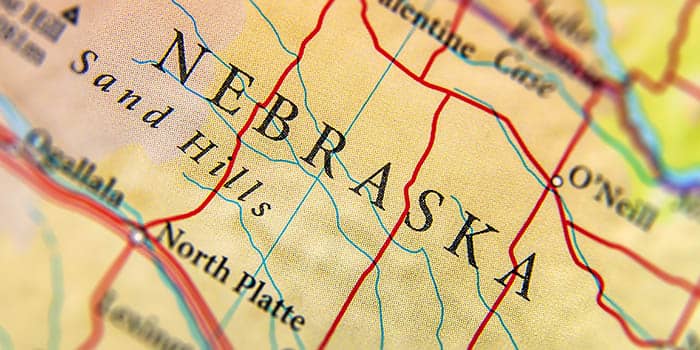- Casino
- By State
- Alabama
- Alaska
- Arizona
- Arkansas
- California
- Colorado
- Connecticut
- Delaware
- Georgia
- Florida
- Hawaii
- Idaho
- Illinois
- Indiana
- Iowa
- Kansas
- Kentucky
- Louisiana
- Maine
- Massachusetts
- Maryland
- Michigan
- Minnesota
- Mississippi
- Missouri
- Montana
- Nebraska
- Nevada
- New Hampshire
- New Jersey
- New Mexico
- New York
- North Carolina
- North Dakota
- Ohio
- Oklahoma
- Oregon
- Pennsylvania
- Rhode Island
- South Carolina
- South Dakota
- Tennessee
- Texas
- Utah
- Vermont
- Virginia
- Washington
- West Virginia
- Wisconsin
- Wyoming
- By State
- Slots
- Poker
- Sports
- Esports
Colorado to Decide on Sports Betting Future on Referendum

- Colorado to vote in November on sports betting in the state
- Estimated $29 million to enter the state coffers if betting is made legal
- Concerns raised about preventing problem gambling behavior
Voters in Colorado will have to decide whether they approve of legalizing sports betting in the state, with some expressing supports and other firmly opposing the measure.
Colorado Voters Go to the Ballot Box to Decide on Sports Betting
Colorado is on the cups of potentially legalizing sports betting, with voters deciding at the ballot whether they want their state to join a number of others where the activity is legal. The referendum is due to take place in November.
While Colorado is deciding whether to go through with the move, a number of other states, including Pennsylvania, Rhode Island and New Jersey are already posting some solid revenue and returns for the state’s coffers.
In Colorado specifically, the draft proposal argues that the state’s operators could be collecting as much as $290 million from sports wager annually, with $29 million going directly to the budget.
Defeat Offshore Websites and Bring Revenue to Colorado
The main argument for bringing legal sports betting to the state is that Colorado sports fans have already been spending a pretty penny offshore. House Majority Leader and sponsor of H.B. 1327 Alec Garnett had this to say recently, regarding the black market:
We know there is a robust market, we know people are already betting across the state through offshore apps right now.
Garnett argued that Colorado lawmakers and voters should work together and follow other states in establishing a licensed and credible industry that ultimately benefits both the state and voters. He further added that given enough support, the move would be a ‘no brainer’.
The House Majority Leader was backed by other like-minded people, including James Eklund, a former Colorado Water Conservation Board Director, who believed that by taxing sports betting, the state stood to raise funds that can be put in key infrastructural projects:
“Proposition DD puts some money in the place that is should be. It won’t solve it by itself. It is not a silver bullet. I would be lying to you if I sat here and said it was. It’s incredibly important that we do this, that we enact proposition DD, but reality it’s… you could call it, the proverbial ‘drop in the bucket.”
Do Voters Know What They Are Voting For?
One concern has been that voters may end up confused by the language of the measure. At ballot, they will have to vote whether they approve of the following proposal:
SHALL STATE TAXES BE INCREASED BY TWENTY-NINE MILLION DOLLARS ANNUALLY TO FUND STATE WATER PROJECTS AND COMMITMENTS AND TO PAY FOR THE REGULATION OF SPORTS BETTING THROUGH LICENSED CASINOS BY AUTHORIZING A TAX ON SPORTS BETTING OF TEN PERCENT OF THE NET SPORTS BETTING PROCEEDS, AND TO IMPOSE THE TAX ON PERSONS LICENSED TO CONDUCT SPORTS BETTING OPERATIONS?
What the proposal suggests is to introduce sports betting and tax it at a rate of 10% through the issuance of licenses and gross revenue.
However, most voters wouldn’t even bother reading the part after ‘shall state taxes be increased,’ as that already creates a negative connotation, some have suggested
The Downsides of Gambling in Colorado
Naturally, there have been a fair few opponents of the measure. Colorado State Senator Larry Crowder has been one of the main opponents who has said that the state should not seek to promote gambling. GamblingNews has reached out to seek Sen. Crowder’s opinion about unregulated gambling markets in the state.
Sen. Crowder wasn’t mistaken to point out that not introducing proper checks could imperil people’s well-being. Every country in the world that has introduced sports betting has to deal with some of the negative impacts.
In places like the United Kingdom and Australia, nearly 10% of the population has been affected by gambling. In the UK, 55,000 are at a risk of becoming problem gamblers as well or show some symptoms.
Sen. Crowder was joined by Larry Wall, who is the current President at the Colorado’s Problem Gambling Coalition.
While Mr. Wall acknowledged that the Coalition would benefit from $100,000 annually to tackle problem gambling, he also explained that it would hardly be enough to address the current – or let alone – future scale of problem gambling behaviour.
Related Topics:
Mike made his mark on the industry at a young age, consulting for companies that would later become regulators. As one of the lead editor of Gambling News, he dedicates his weekdays to this project, aiming to educate the masses on the latest developments in the gambling circuit. His expertise and passion for the industry make him an invaluable asset to our team.
Must Read
Legal
June 26, 2025
Entain Loses Trademark Battle in EU Copyright Clash
Legal
June 27, 2025
Nebraska Lottery Winner Seeks to Dismiss Fraud Charges
More Articles



Legal
June 26, 2025
Entain Loses Trademark Battle in EU Copyright Clash

Legal
June 27, 2025
Nebraska Lottery Winner Seeks to Dismiss Fraud Charges


